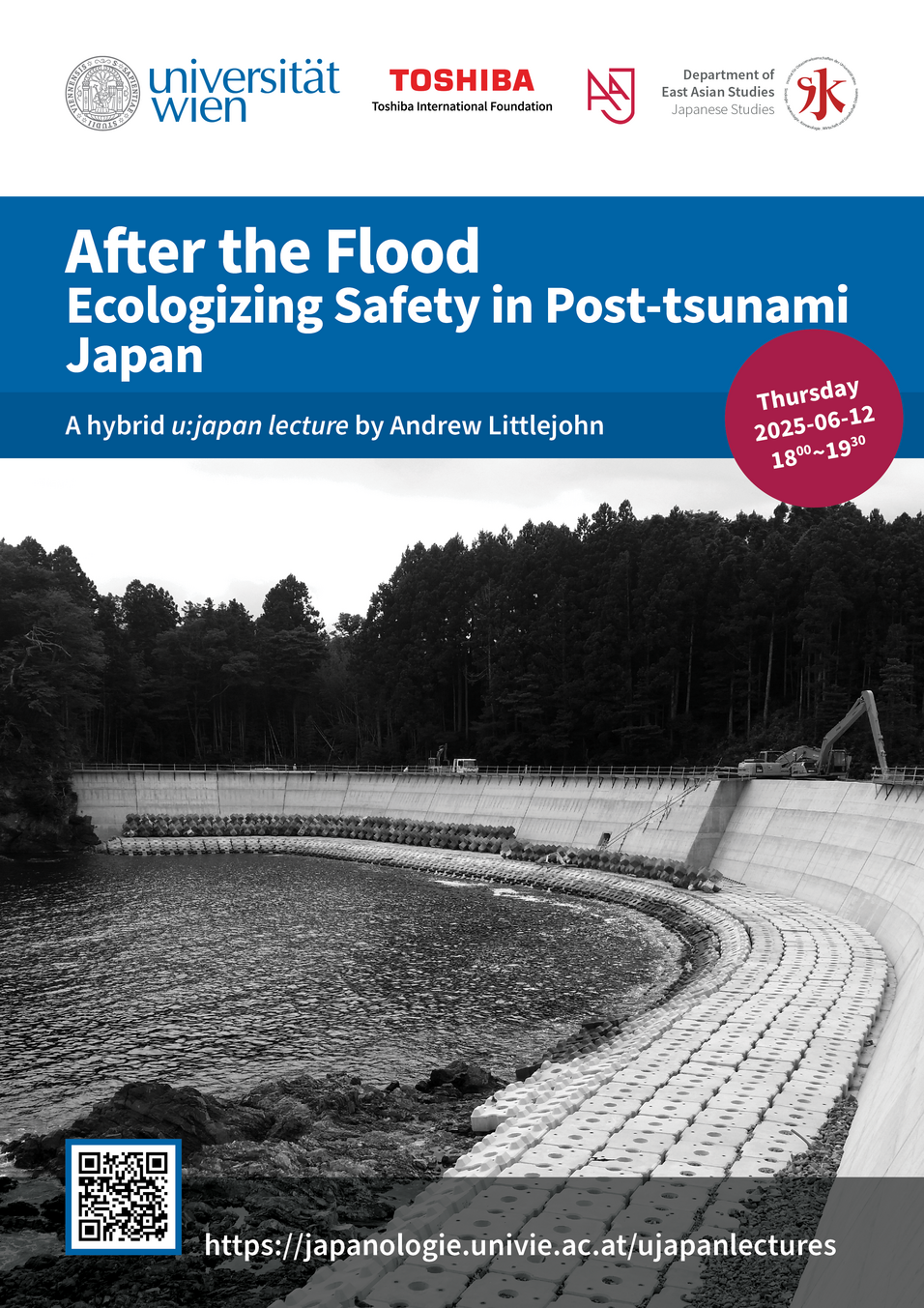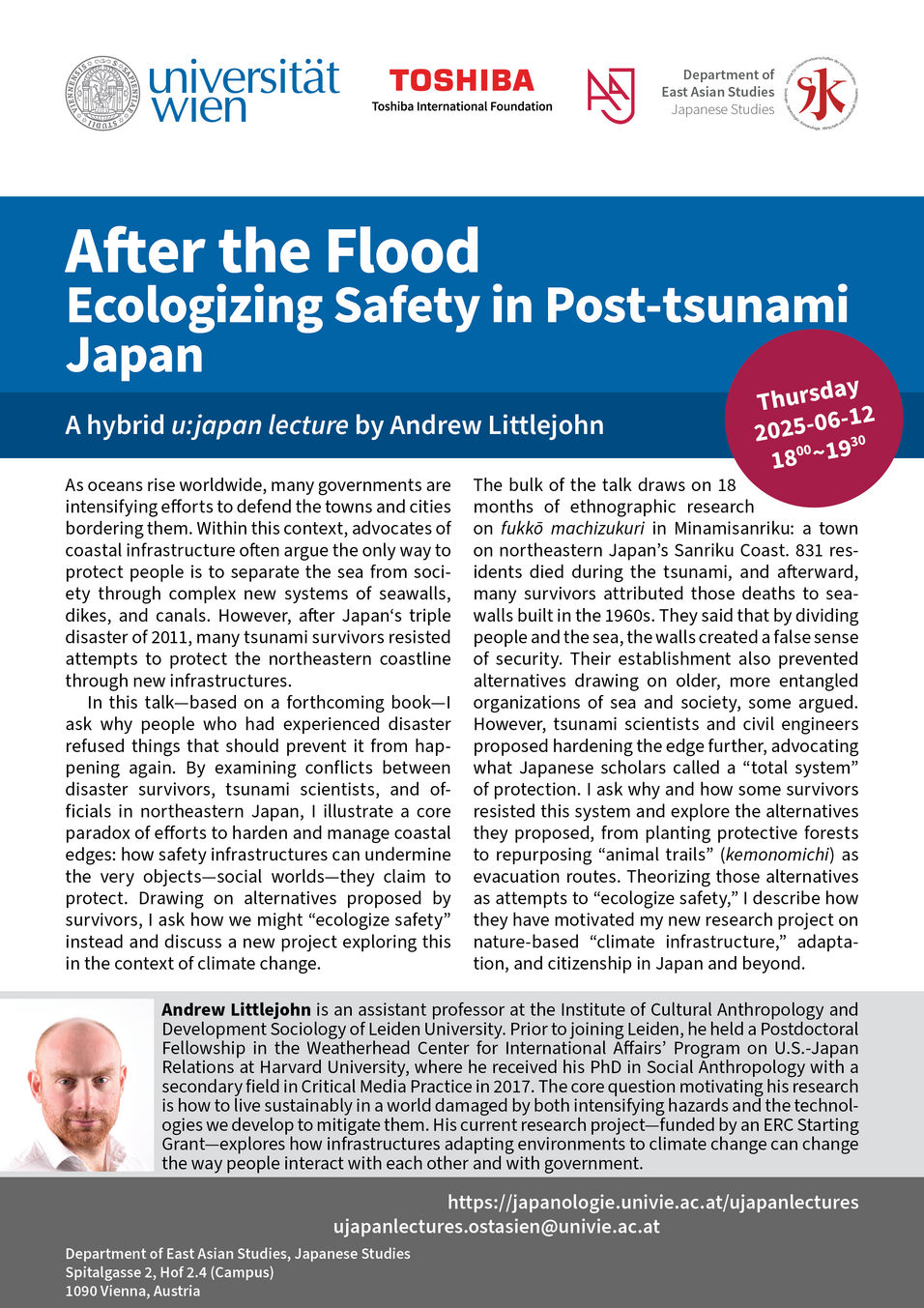| Abstract |
As oceans rise worldwide, many governments are intensifying efforts to defend the towns and cities bordering them. Within this context, advocates of coastal infrastructure often argue the only way to protect people is to separate the sea from society through complex new systems of seawalls, dikes, and canals. However, after Japan's triple disaster of 2011, many tsunami survivors resisted attempts to protect the northeastern coastline through new infrastructures. In this talk—based on a forthcoming book—I ask why people who had experienced disaster refused things that should prevent it from happening again. By examining conflicts between disaster survivors, tsunami scientists, and officials in northeastern Japan, I illustrate a core paradox of efforts to harden and manage coastal edges: how safety infrastructures can undermine the very objects—social worlds—they claim to protect. Drawing on alternatives proposed by survivors, I ask how we might “ecologize safety” instead and discuss a new project exploring this in the context of climate change.
The bulk of the talk draws on 18 months of ethnographic research on fukkō machizukuri in Minamisanriku: a town on northeastern Japan’s Sanriku Coast. 831 residents died during the tsunami, and afterward, many survivors attributed those deaths to seawalls built in the 1960s. They said that by dividing people and the sea, the walls created a false sense of security. Their establishment also prevented alternatives drawing on older, more entangled organizations of sea and society, some argued. However, tsunami scientists and civil engineers proposed hardening the edge further, advocating what Japanese scholars called a “total system” of protection. I ask why and how some survivors resisted this system and explore the alternatives they proposed, from planting protective forests to repurposing “animal trails” (kemonomichi) as evacuation routes. Theorizing those alternatives as attempts to “ecologize safety,” I describe how they have motivated my new research project on nature-based “climate infrastructure,” adaptation, and citizenship in Japan and beyond.
| Date & Time |
u:japan lecture | s10e10
Thursday 2025-06-12, 18:00~19:30
| Place |
| Plattform & Link |
https://univienna.zoom.us/j/64381453251?pwd=soUjdv8N2aUPLRKgSN4PXIxq89OXPB.1
Meeting-ID: 643 8145 3251 | Passcode: 295514
| Further Questions? |
Please contact ujapanlectures.ostasien@univie.ac.at or visit https://japanologie.univie.ac.at/ujapanlectures/s10/#e10.


